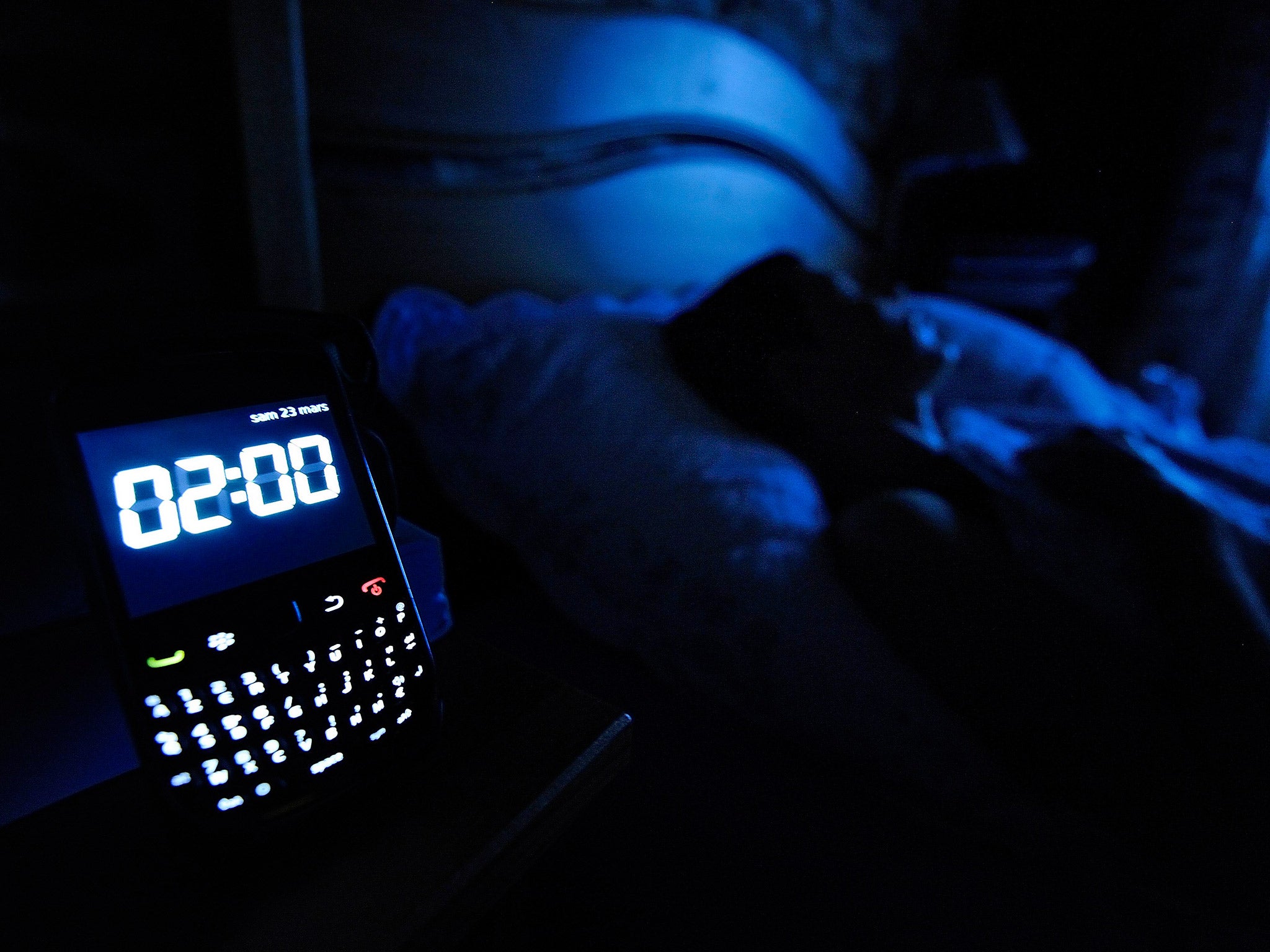Sleeping with the enemy? Why smartphones might not make the best bedfellows...

Your support helps us to tell the story
From reproductive rights to climate change to Big Tech, The Independent is on the ground when the story is developing. Whether it's investigating the financials of Elon Musk's pro-Trump PAC or producing our latest documentary, 'The A Word', which shines a light on the American women fighting for reproductive rights, we know how important it is to parse out the facts from the messaging.
At such a critical moment in US history, we need reporters on the ground. Your donation allows us to keep sending journalists to speak to both sides of the story.
The Independent is trusted by Americans across the entire political spectrum. And unlike many other quality news outlets, we choose not to lock Americans out of our reporting and analysis with paywalls. We believe quality journalism should be available to everyone, paid for by those who can afford it.
Your support makes all the difference.A couple of months ago I discovered a sleeping aid that seemed to work. A 30-minute audio recording on YouTube of someone reenacting a mundane spa treatment turned out to have unique tranquillising properties – I still haven't got even halfway through without falling asleep.
If I wake up in the middle of the night, I reach for my phone, stick it on again and within 15 minutes I'm out like a light. As a consequence, my phone has become an essential overnight companion, lying on my bed or close by, within reach and within earshot. Which would be the happy end to a scintillating tale featuring me as the peacefully slumbering hero, were it not for the fact that having a phone as your night-time pal appears to be a very bad idea.
"Welcome to the way we sleep now," began a piece on Buzzfeed this week, in which the author surveyed the overnight technology habits of her colleagues and discovered widespread attachment to smartphones during the hours of darkness. OFCOM has, in recent months, released a few statistics that echo this: 80 per cent of us keep our phones on overnight, 50 per cent use them as an alarm, 63 per cent of 18-29 year-olds sleep "with" their phones, and while we apparently spend more time using technology each day (8 hrs 41 mins) than we do sleeping (8 hrs 21 mins), in many cases there's evidently some overlap.
The phone that lies within inches of your pillow is a radio, an e-book reader, a news source, a music player, an alarm clock, a provider of soothing YouTube videos. It also runs apps designed to monitor your sleep cycle and even to record the sweet nothings you mutter as you're dreaming. But for every way in which it's the ultimate night-time companion, there'll be an argument to cancel that out.
Let's ignore the news story from the other week about a Samsung Galaxy belonging to a girl from Texas which overheated under her pillow and woke her with a burning smell – after all, that's a statistical outlier. But for years psychologists have debated the mental toll that the smartphone takes on us by being left on overnight; the way it encourages a subconscious alertness, a hypervigilance where we're half expecting a call or a message to come in.
Then there's the light that the phones emit. About a year ago a professor at Harvard Medical School warned of the effects of the colour temperature of smartphone screens; checking Facebook, exchanging messages or reading news stories before bedtime, he said, can disrupt circadian rhythms and affect our concentration or even our weight. "The wrong type of light at night may even increase the risk of cancer," said a member of the American Medical Association. Of course, we're constantly told that various things may or may not fall into a carcinogenic category and through mental self-preservation we tend to be wary of these claims.
We know that phones pump out electromagnetic radiation, but as public health bodies say that they simply "don't know" if that's damaging in the long term, we happily place them next to our heads at night. We certainly can't imagine a future where smartphone use is viewed with the same disbelief as we view "health products" of yesteryear such as radium pendants, uranium blankets or bottles of radiation water. But having spent the last three hours consuming phone-related scare stories, I'm thinking of transferring that spa treatment audio from YouTube to a CD and leaving my phone in the next room.
What delicious irony it would be if, deprived of my sleeping aid on my phone, all my sleeping problems then magically evaporated.
Join our commenting forum
Join thought-provoking conversations, follow other Independent readers and see their replies
Comments